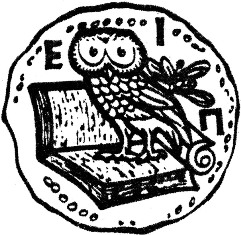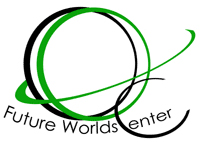
The Foreign relations of Egypt are the Egyptian government's external relations with the outside world. Egypt's foreign policy operates along a non-aligned level. Factors such as population size, historical events, military strength, diplomatic expertise and a strategic geographical position give Egypt extensive political influence in the Middle East, Africa, and within the Non-Aligned Movement as a whole. Cairo has been a crossroads of the Arab world's commerce and culture for centuries, and its intellectual and religious institutions are at the center of the region's social and cultural landmarks.

André Azoulay is a Moroccan Jewish senior adviser to king Mohammed VI of Morocco. He previously advised Mohammed's father, king Hassan II. He currently presides over the Anna Lindh Euro-Mediterranean Foundation for the Dialogue Between Cultures, based in Alexandria, Egypt. He is also President of the Executive Committee of the Foundation for the Three Cultures and the Three Religions, based in Seville, Spain, a founding member of the C-100 Davos Forum for the Dialogue of Civilisations and religions, and was formerly Executive Vice-President of the BNP Paribas, Paris. His daughter is UNESCO Director-General Audrey Azoulay.

Ahmed Shaheed is a Maldivian diplomat and politician. On 24 March 2016, he was appointed for the sixth year running as the United Nations Special Rapporteur on the human rights situation in the Islamic Republic of Iran. Dr Shaheed is also the Chairperson of the Geneva-based international human rights think-tank, Universal Rights Group, which was launched in January 2014.

The Hellenic Foundation for Culture, founded in 1992, is a cultural and educational organization, based in Athens, which aims to promote Greek language and Greek culture. Professor Ioannis Georgakis, was the prime mover, founder and first President of the Hellenic Foundation for Culture and he had the vision of establishing an institution for Greek culture abroad.
The Electronic Network for Arab-West Understanding (ENAWU) is a specialized information network that links together a network of think-tanks and information repositories in the West and the Arab world.

The Union for the Mediterranean is an intergovernmental organization of 42 member states from Europe and the Mediterranean Basin: the 27 EU member states and 15 Mediterranean partner countries from North Africa, Western Asia and Southern Europe. It was founded on 13 July 2008 at the Paris Summit for the Mediterranean, with an aim of reinforcing the Euro-Mediterranean Partnership (Euromed) that was set up in 1995 as the Barcelona Process. Its general secretariat is located in Barcelona, Spain.
GPoT Center officially the Global Political Trends Center is a research unit, which was established by Mensur Akgun and Sylvia Tiryaki at the Istanbul Kültür University in Turkey in 2009. The mission of the Center is to conduct research, projects, to produce innovative publications analyzing the latest issues in the international relations, to formulate viable political recommendations and to boost the dialogue between civil society, academia and media. The Center also works to "contribute to stability, democratization and peace through organizing multi-track diplomacy meetings". It regularly brings together opinion leaders, scholars, experts and government officials, not only from Turkey, but also from other countries.
Euclid Network (EN) is a European network of organisations that support social entrepreneurs. Members are based in 21 countries and represent over 100.000 organisations within and outside of Europe. EN is a strategic partner of the European Commission and an observer to the United Nations Task Force on Social and Solidarity Economy (UNTFSSE),
Mohamed bin Issa Al Jaber is an Arab businessperson.

Future Worlds Center (FWC) is a non-profit, non-Governmental independent organization active in programs with future orientation in areas related to positive social change, social entrepreneurship and transformation.
The Euro-Mediterranean Association for Cooperation and Development e.V. (EMA) is a German nonprofit organization that works in the field of development cooperation between Europe, especially Germany, and the countries of the Mediterranean and the Middle East. It is based in Hamburg, with branches in Berlin, Bavaria and North Rhine-Westphalia. The association's aim is to further economic development cooperation and political, cultural and academic exchange between Germany and the countries of Northern African, the Middle East and the Persian Gulf region.

Caroline Y. Robertson-von Trotha is a Scottish sociologist and cultural scientist, working in Germany.
The Center for Intercultural Dialogue is an academic organization founded in 2010 by the Council of Communication Associations, a United States non-profit designed to encourage research on intercultural dialogue.

Nasser Kamel is an Egyptian statesman. He currently serves as the Secretary General of the Union for the Mediterranean., bringing more than three decades of experience in Euro-Mediterranean relations to the role.

The cultural organization Routes of the Olive Tree is a non-governmental organization for research, documentation, protection and valorization of the civilization of the olive tree.
Affaf Tobbala is an Egyptian television documentary director and producer and an author, primarily of children's literature. Tobbala has been nominated for and received a number of literary awards in Egypt and abroad. Her 2006 book, Sika and Mokka, received the 2007 Suzan Mubarak Prize for Children's Literature and was included on the 2010 International Board on Books for Young People (IBBY) List of Honor.
Rania Zaghir Rania Zaghir is a Lebanese writer and publisher of Arabic children books, several of which have been translated.

Candid Foundation is a private non-for-profit organisation working in the fields of intercultural dialogue, media, research and development. It was founded in 2014 in Berlin. The organization focuses on the countries of the Southern Mediterranean, Western Asia and the wider MENA region.

Dalia Ziada is an Egyptian award-winning writer. She is the author of "The Curious Case of the Three-Legged Wolf - Egypt: Military, Islamism, and Liberal Democracy" and other internationally acclaimed non-fiction books on Middle East politics. She currently works as the Chairperson of the Liberal Democracy Institute, and Executive Director of MEEM Center for Middle East and Eastern Mediterranean Studies.
Intercultural dialogue (ICD) "occurs when members of different cultural groups, who hold conflicting opinions and assumptions, speak to one another in acknowledgment of those differences". It builds upon the concept of dialogue, which refers to at least two people holding a conversation. And it builds upon the term intercultural, which is typically used to refer to people communicating across differences in nationality, race and ethnicity, or religion. Dialogue has several meanings: it sometimes refers to dialogue in a script, which simply means people talking, but more often it refers to "a quality of communication characterized by the participants' willingness and ability simultaneously to be radically open to the other(s) and to articulate their own views. ... Dialogue's primary goal is understanding rather than agreement."












